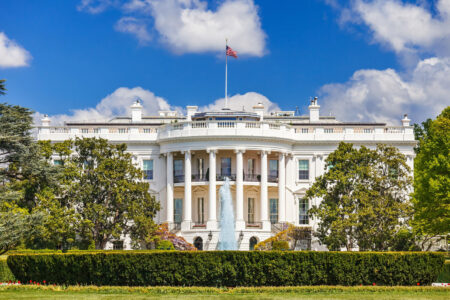The United States Congress has been having trouble deciding on a new infrastructure bill over debates on cryptocurrency regulation. It originally aimed to offset additional costs caused by the bill through stronger enforcement of tax laws in the crypto industry.
Update 10.08.21: The amendment to the bill did not pass unanimously in the Senate and thus will be discarded. This means that the Senate and House will vote on the original version of the infrastructure bill. The actual implementation is estimated to be in 2023.
The U.S. Congress’ decision on the highly anticipated infrastructure bill is undergoing some delays because of the wording in its crypto legislation. The back and forth first started when Senator Pat Toomey said that he would propose an amendment to the legislation because it just didn’t "work". Toomey believes that the definition of what a broker is should change - and not include wallet providers, miners, and stakers, for example.
Adjustment of the infrastructure bill
Along with Senators Wyden and Lummis, Toomey proposed an amendment with the change in definition, among other things. Their goal was to make the bill more conducive for innovation, something pro-crypto lobbyists have been fighting for. The crypto community clearly supported this adjustment, but it appears to have caused a snag in Congress.
Some experts have said that this is a sign that cryptocurrencies are beginning to be understood by officials, including its potential. There appear to be two camps in the government: one that supports oversight for immediate benefits like greater tax revenue and another that sees greater long-term benefits from friendly regulation.
"Shutting off this growth engine would be the equivalent of stopping e-commerce in 1995 because people were afraid of credit card fraud. Or regulating the creation of websites because some people initially thought they were complicated and didn’t understand what they would ever amount to." - Mark Cuban, investor and owner of the Dallas Mavericks.
Big tech, already a hot topic in the government, might also play a big role in the years to come. Twitter co-founder and CEO Jack Dorsey supported the amendment put forward by senators, saying that the original requirements were unworkable for stakeholders. Dorsey is a prominent supporter of bitcoin and has called it the money of the Internet. Coinbase and others have done the same, but it remains to be seen if the amendment will be approved.
All eyes on U.S. crypto regulation
The U.S. is inching closer to releasing a substantial regulatory framework for the crypto market. For the longest time, governmental authorities hesitated from involving themselves. But the market cannot be ignored anymore, and the occurrence of notorious incidents like the Colonial Pipeline hack have spurred decision-making.
But the specific nature of the future of crypto in the U.S. is up in the air. While it is unlikely that the U.S. will impose any damning laws, it is not likely to let the crypto market go fully untethered. Major names in the government have repeatedly stated the importance of investor protection, including Gary Gensler, Chairman of the SEC.
Other countries will also focus on the U.S.’ actions. While some countries have begun working on regulation, most notably South Korea, most have barely begun to examine it. Many will follow the lead of the U.S., and for that reason, the upcoming regulation could have a big impact on the market.




